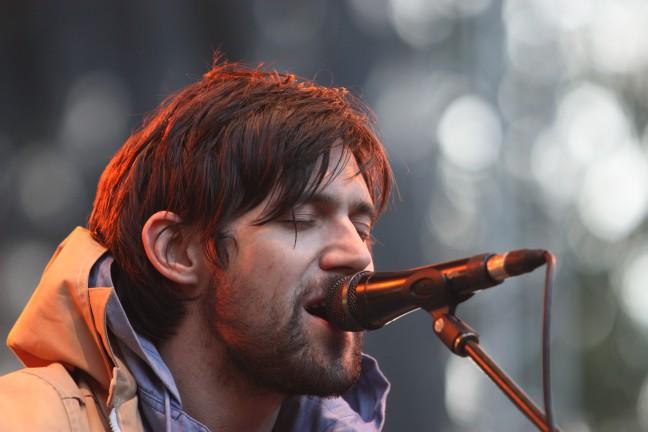Though Conor Oberst might have been the only name on the bill, he was far from the only performer on the Barrymore stage. Still, his impassioned performance Friday night managed to remind audiences why his solo recognition was warranted.
With a seven-piece accompanying band, consisting of a combination of members from opening acts High Up and Larkin Poe, Oberst and friends played tracks from both his solo and Bright Eyes albums.
The colors and textures that Oberst’s accompanying band brought to his work added an entirely new dimension to the Oberst discography.
For example, the band took “Ladder Song,” whose studio version consists solely of Oberst’s vocals and piano, and added brass elements to give the song an entirely new life and body.
In a way, all the band’s phonic additions further shaped Oberst’s songs to feel like a live grand re-mastering of the Oberst catalog.
On stage, Oberst appeared more like the grand maestro of the performance rather than the frontman. Whether directing his brass section, giving equalizing cues on stage or asking the technician to bring the lights down to just the right level, Oberst retained constant control over every aspect of the performance.
But this doesn’t mean that Oberst’s role as frontman was lacking. He delivered each vocal line with his trademark fragile, yet ever-emotive voice and strummed each chord on his guitar with passion and conviction.
When he wasn’t behind the mic, he spun around the stage with grace and fluidity, engaged one on one with his bandmates and created tangible chemistry within the group.
Oberst’s performance, combined with his attention to detail, gave a strong impression that he’s someone who truly cares about his craft. Unfortunately, his attention to detail came at a price.
But with Oberst’s audiophile nitpicking came an obnoxious amount of setup time for each song. After nearly every other track, Oberst whispered “stand by, stand by” into the mic as he and his audio tech fiddled with instruments and set changes.
The length of the set — just over two hours — greatly detracted from the experience, but luckily stopped short of ruining it. But with so many interruptions, the show noticeably started waning after it breached the hour-and-a-half mark.
The musicianship and energy Oberst brought to the stage managed to overshadow the shortcomings resulting from the show’s pacing. Fans indulged in a smorgasbord of material from both sides of Oberst, ultimately resulting in a satisfying night of music.








